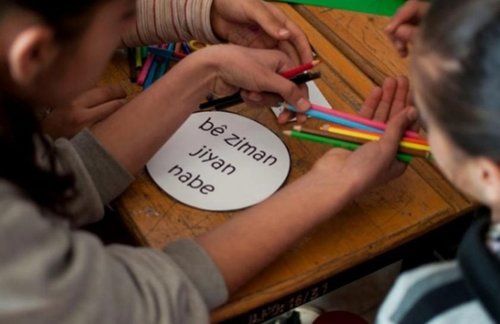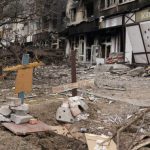Results of the “Language Map” project carried out by the Center for Kurdish Studies and the Rawest Research company have been released.
As part of the project, 5,096 people (79 percent Kurmanji, 9 percent Zaza and 11 percent Arab) from the predominantly Kurdish-populated provinces of Urfa, Mardin, Diyarbakır and Van were interviewed.
The purpose of this study was to monitor the use of language periodically, to create data for language studies, to monitor the intensity of language-based demands periodically, and to create a “Language Barometer.”
According to the results of the study, the Kurds want Kurdish to be recognized as the second official language and want municipalities to provide services in Kurdish.
Diyarbakır
In Diyarbakır, 90 percent of the respondents say they can speak and understand Kurdish at various levels. One-third of them have higher-than-average reading and writing skills in Kurdish.
32.9 percent of respondents talk to their parents in only their mother tongue and 9.5 percent speak only in Turkish. The share of those who speak only in their mother tongue when talking to their spouses or significant others is 12 percent, and the share of those who only speak in Turkish is 20.4 percent.
One-fourth of the respondents speak to their children only in Turkish and 8.8 percent speak only in their mother tongue. The rate of those who speak to their children in only their mother tongue is about four times lower than those who speak to their parents only in their mother tongue.
Almost all respondents in Diyarbakır think mother tongue should be included in the education system.
Van
In Van, almost all respondents stated that they can speak and understand Kurdish at various levels.
The share of those with above-average reading and writing skills is between 20 and 25 percent.
Almost all respondents in Van think mother tongue should be included in the education system.
Urfa
In Van, almost all respondents stated that they can speak and understand Kurdish at various levels.
While the rate of those who have a good command of their mother tongue is between 75-80 percent among Arabs, it is 55 percent among Kurds.
The share of Arabs who read and understand their mother tongue is higher than Kurds whereas the reading and writing proficiency is higher among the Kurds.
Among the Kurds, 58.5 percent think Kurdish should be the second official language in the region. One-fourth of the Arabs support this demand.
Seventy percent of Kurds want services in Kurdish in municipalities; 40 percent of Arabs support this demand.
Sixty-four percent of Kurds and 39.4 percent of Arabs want mother tongue classes at schools for students whose mother tongue is not Turkish.
Seventy-two percent of Kurds and over 60 percent of Arabs think their mother tongues should be included in the education system. Almost all the respondents who support this demand prefer a system where both Turkish and the mother tongue are taught.
Mardin
In Mardin, almost all respondents stated that they can speak and understand Kurdish at various levels.
Like in Urfa, the share of Arabs who read and understand their mother tongue is higher than Kurds whereas the reading and writing proficiency is higher among the Kurds in Mardin.
35.4 percent of the Kurds and 17.4 percent of the Arabs speak to their parents in only their mother tongue. Fifteen percent of the Kurds and 4.7 percent of the Arabs speak to their children in only their mother tongue.
82.9 percent of the Kurds want Kurdish to be the second official language in the region. Forty-four percent of the Arabs support this demand.
Eighty-eight percent of Kurds want services in Kurdish in municipalities; 58.5 percent of Arabs support this demand.
Eighty-seven percent of Kurds and 64.7 percent of Arabs want mother tongue classes at schools for students whose mother tongue is not Turkish.
94.5 percent of Kurds and over 83.3 percent of Arabs think their mother tongues should be included in the education system. Almost all the respondents who support this demand prefer a system where both Turkish and the mother tongue are taught.
Conclusions
The ability to speak and understand the mother tongue mostly continues, but the use of the mother tongue in daily life is not common.
The rate of speaking and using their mother tongues is higher among men than among women.
The use of mother tongue is less common in city centers than in the countryside.
As the level of education increases, the rate of speaking and using the language decreases.
Peoples’ Democratic Party (HDP) voters have the highest rate of speaking and using the language.
The greatest common demands of the Kurds are those related to their mother tongue.
Also, the mother tongue demand is the one that receives the least negative reaction and the most positive reaction by Turkey’s public.
The visibility of mother-tongue based demands increases; there is a non-centralized language movement.
The issue of mother tongue has the potential to serve as a lever for Kurdish politics in the upcoming period.
(RT/VK)
Source:Bianet
***Show us some LOVE by sharing it!***



